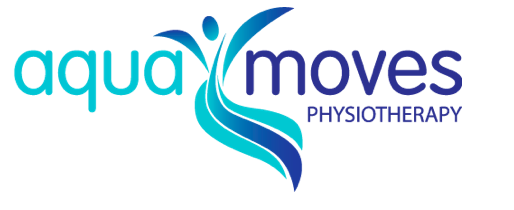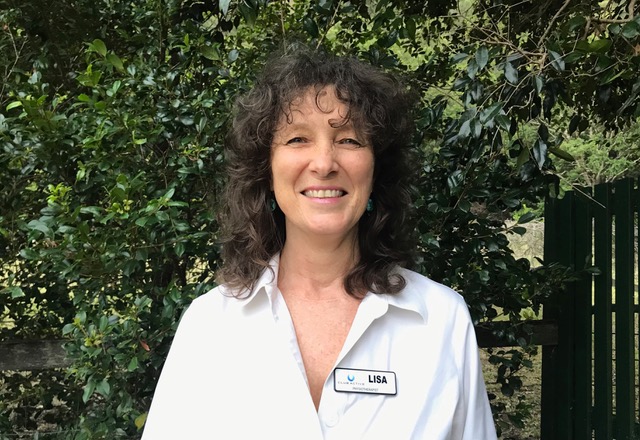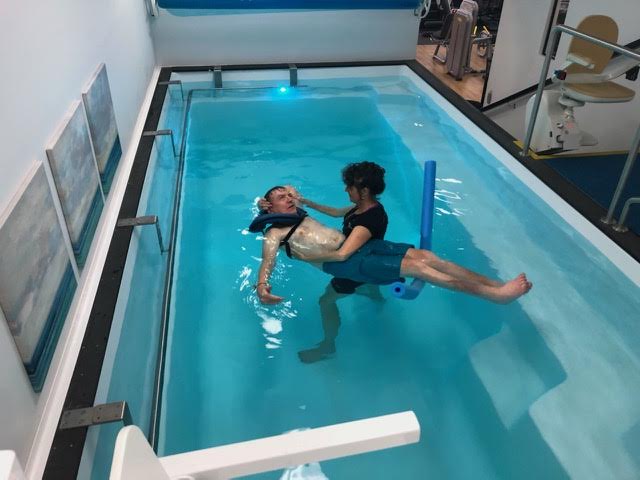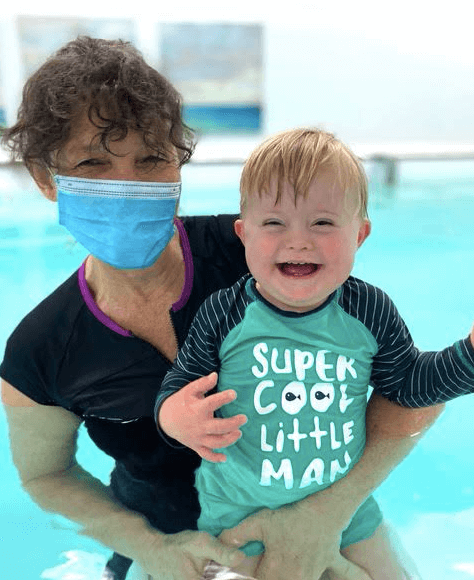
Club Active is an over 50s health and fitness centre with an in-house allied health clinic offering professional services from dietitians, physiotherapists, and exercise physiologists. We spoke with our Physiotherapist Lisa Gilkes, about her journey to creating Aqua-Moves Physiotherapy, a dedicated hydrotherapy service.
Why did you become a physiotherapist?
My father was a radiographer and I worked as a darkroom technician when I was in high school. I was always fascinated by the human body and interested in health and was delighted when I was accepted into the physiotherapy degree. I feel incredibly fortunate to have chosen a career that I still love.
What are the benefits of Hydrotherapy?
Neuroaquatics offers a dynamic, innovative, and creative approach that facilitates learning and empowers the individual in their rehabilitation. It can assist people that are suffering from:
- Chronic pain
- Arthritis
- Recovering from an injury or surgery
- Struggling to move after a stroke
- Balance and mobility issues
We know that in heated water, the body is unloaded and supported, reducing the stress on joints, easing pain, and making movement easier. Most people are more relaxed, and the nervous system is more receptive. Through hands-on work and instruction, we guide clients through a series of gentle movements that are designed to feed very specific information back into the nervous system to help restore the body’s image in the brain and improve movement and function. When a person becomes more aware of how they move and organise themselves, then exercises for mobility, strength, and stability are more effective.
Why did you study Feldenkrais and what exactly is it?
Toni Fuller and I have developed a unique physiotherapy treatment approach in water called “Neuroaquatics”™. This approach is influenced by Feldenkrais principles and the most recent research on motor learning, brain neuroplasticity, and pain management.
The Feldenkrais Method® is a movement-based, exploratory learning system that enhances your ability to move and remain active in life. I heard about Feldenkrais in the mid-1980s and it always made sense to me that habitual patterns of movement needed to be addressed to have any long-term effect on a person’s pain or recurrence of symptoms. When a person has experienced pain or had an injury, they move in a protective way which is very useful initially, but if these patterns persist, they cause other problems. For example, having a hip or knee replacement doesn’t automatically restore a normal walking pattern. I feel that I am a much better therapist for having integrated the Feldenkrais Approach into my Physiotherapy practice.
Fun Facts about Club Active’s Physiotherapist Lisa Gilkes
- I grew up in Adelaide and graduated as a physiotherapist 1984.
- I met my husband, who is Belgian while travelling in Kenya.
- Two of my favourite past times are bushwalking and listening to live music with friends.
- I have always loved to travel and in my early 20s travelled around Australia and then I worked and travelled overseas for six years.
- I still love to travel but am also keen to travel more in the wilderness areas of Australia.
Interested in Aqua-Moves Physiotherapy?
Lisa is available by appointment only at Club Active Burleigh // Contact to arrange on 1300 258 250.
Your GP can provide an allied health referral for physiotherapy under a Chronic Diseases Management (CDM) plan. Your consult fees are then reduced and medicare pays a good portion of the fee so you will only need to pay the gap. A referral is not necessary if privately funded and health fund rebates apply. We also work with NDIS, DVA and Work Cover.




